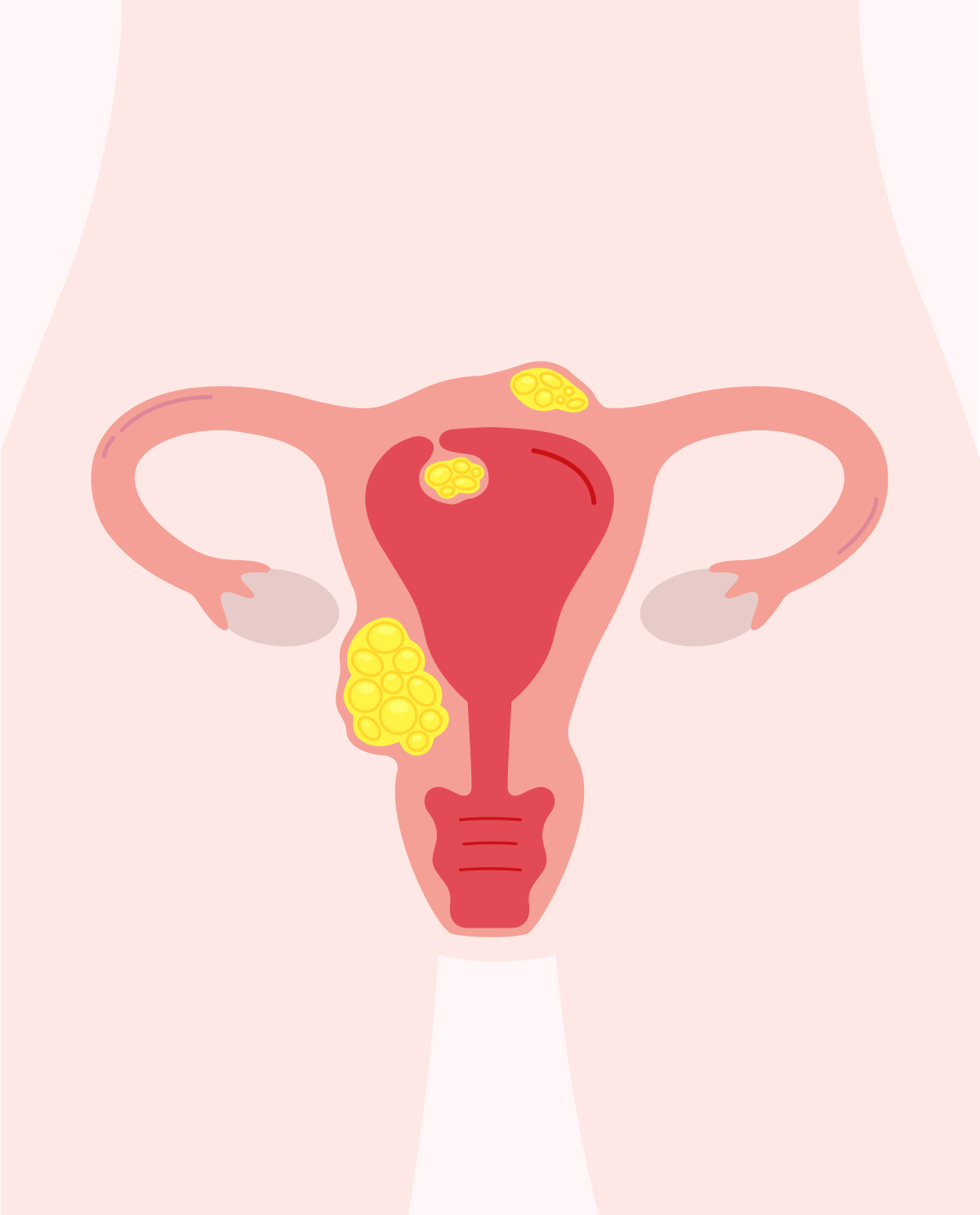Uterine fibroids, medically known as leiomyomas, are noncancerous growths of the uterus that often appear during a woman’s childbearing years. While many women with fibroids experience no symptoms, these growths can sometimes lead to complications, including challenges with fertility and pregnancy.
Understanding Uterine Fibroids
Fibroids are composed of smooth muscle cells and connective tissue and can vary in size and location within the uterus. They are classified into several types based on their position:
- Subserosal Fibroids: Develop on the outer uterine wall.
- Intramural Fibroids: Grow within the muscular wall of the uterus.
- Submucosal Fibroids: Protrude into the uterine cavity.
- Pedunculated Fibroids: Attached to the uterine wall by a stalk-like structure.
The exact cause of fibroid development remains unclear, but factors such as hormonal fluctuations, genetics, and lifestyle may contribute to their growth.
Uterine Fibroids and Fertility
While many women with fibroids can conceive naturally, certain fibroids, depending on their size and location, can impact fertility. For instance, submucosal fibroids that distort the uterine cavity can interfere with embryo implantation, potentially leading to infertility. Fibroids may also block the fallopian tubes, preventing sperm from reaching the egg. It’s estimated that fibroids are the sole cause of infertility in approximately 2–3% of women.
Impact on Pregnancy
During pregnancy, fibroids can pose various challenges:
- Miscarriage: Fibroids, especially submucosal types, have been associated with an increased risk of miscarriage.
- Preterm Birth: The presence of fibroids may lead to premature labor.
- Placental Abruption: Fibroids can cause the placenta to separate from the uterine wall prematurely.
- Fetal Growth Restriction: Large fibroids may reduce space in the uterus, restricting fetal development.
However, many women with fibroids have successful pregnancies. The specific risks often depend on the size, number, and location of the fibroids.
Treatment Options
Several treatment options are available for women with fibroids, especially those experiencing symptoms or facing fertility challenges:
- Medications: Drugs like gonadotropin-releasing hormone (GnRH) agonists can shrink fibroids temporarily but are not suitable for long-term use.
- Surgical Interventions:
- Myomectomy: Surgical removal of fibroids, preserving the uterus. This procedure is often recommended for women who wish to maintain fertility.
- Hysterectomy: Complete removal of the uterus; considered when other treatments are ineffective or not desired.
- Minimally Invasive Procedures:
- Uterine Artery Embolization (UAE): Blocks blood flow to fibroids, causing them to shrink.
- Radiofrequency Ablation: Uses heat to destroy fibroid tissue.
- Magnetic Resonance Guided Focused Ultrasound (MRgFUS): Non-invasive procedure that uses focused ultrasound waves to destroy fibroids.

The choice of treatment depends on factors like the severity of symptoms, size and location of fibroids, and the patient’s desire for future pregnancies.
Recent Advances
As of 2025, new medical treatments have emerged. For instance, in England, the National Institute for Health and Care Excellence (NICE) approved a daily tablet called Linzagolix (Yselty) for women with moderate to severe fibroid symptoms. This medication works by reducing hormone levels that control estrogen and progesterone production, thereby shrinking fibroids and alleviating symptoms.
Conclusion
Uterine fibroids are a common concern among women of reproductive age. While they can impact fertility and pregnancy, many women with fibroids can conceive and have healthy pregnancies. It’s essential to consult with a healthcare provider to understand the specific implications of fibroids and explore appropriate treatment options tailored to individual needs.
Sources
- Can I have a baby if I have fibroids? – UChicago Medicine
- Uterine Fibroids and Infertility – PMC
- Fibroids and Fertility patient education fact sheet
- The Impact and Management of Fibroids for Fertility: an evidence-based approach – PMC
- Uterine fibroid–related infertility: mechanisms and management
- Women in England to be offered a daily tablet for fibroids, Nice says

